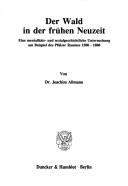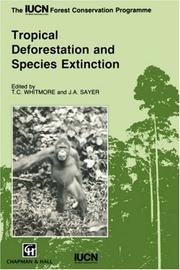| Listing 1 - 5 of 5 |
Sort by
|
Book

ISBN: 9791036562396 Year: 2020 Publisher: Aix-en-Provence : Presses universitaires d’Aix-Marseille,
Abstract | Keywords | Export | Availability | Bookmark
 Loading...
Loading...Choose an application
- Reference Manager
- EndNote
- RefWorks (Direct export to RefWorks)
Longtemps ignorée et perçue comme un outil de dernier recours, la priorité devant aller à la prévention des atteintes au milieu naturel, la compensation écologique, mise sous les projecteurs par la loi n° 2016-1087 du 8 août 2016 pour la reconquête de la biodiversité, de la nature et des paysages, est aujourd’hui devenue une notion phare du droit de l’environnement. Des questionnements persistent néanmoins du fait d’imprécisions juridiques qui résident dans la notion même de compensation, les difficultés liées à l’évaluation de la perte de biodiversité, ou encore la pluralité des compensations écologiques donnant lieu à des régimes juridiques afférents dissemblables. Il est certain que l’indétermination initiale d’un régime des mesures de compensation a permis une grande flexibilité dans leur application, au bonheur des acteurs économiques, mais a également généré des difficultés, voire des défaillances pratiques lors de la mise en œuvre effective de ces mesures de compensation. Aux vues de ces différents constats, l’équipe de l’Institut de droit de l’environnement et du développement durable s’est tournée vers l’Agence ITER France, avec qui la Faculté de droit et science politique d’Aix-Marseille a développé un partenariat, afin d’étudier la mise en œuvre de mesures compensatoires, à partir d’un exemple d’une envergure particulièrement contraignante et novatrice du fait, notamment, du cadre de concertation mis en place pour définir les mesures compensatoires pertinentes. L’étude du modèle mis en œuvre permettra d’en retirer les éléments caractéristiques et d’en apprécier la portée. Partir de cette expérience pragmatique, présente l’intérêt scientifique de rechercher à conceptualiser un modèle de référence, tout en examinant également d’autres expériences de compensation mise en œuvre par des maîtres d’ouvrages différents.
Economics --- Environmental Studies --- compensation écologique --- environnement --- biodiversité --- compenser --- concertation --- projet ITER France --- parties prenantes --- GPMM --- défrichement --- droit de l'environnement --- réduire --- milieu naturel --- séquence éviter

ISSN: 05820588 ISBN: 3428068068 9783428068067 Year: 1989 Volume: 36 Publisher: Berlin Duncker & Humblot
Abstract | Keywords | Export | Availability | Bookmark
 Loading...
Loading...Choose an application
- Reference Manager
- EndNote
- RefWorks (Direct export to RefWorks)
History of Germany and Austria --- anno 1500-1799 --- Clearing of land --- Forest management --- Forests and forestry --- Défrichement --- Forêts --- Forêts et sylviculture --- History --- Histoire --- Gestion --- Forêt --- --Gestion --- --Allemagne --- --Temps modernes, --- Histoire des mentalités --- --Histoire sociale --- --History --- Défrichement --- Forêts --- Forêts et sylviculture --- Forest management - Germany - History --- Forests and forestry - Germany - History --- Clearing of land - Germany - History --- Temps modernes, 1492-1789 --- Histoire sociale --- Allemagne

ISBN: 2852760371 2810709130 9782852760370 Year: 1988 Volume: 8 Publisher: Auch
Abstract | Keywords | Export | Availability | Bookmark
 Loading...
Loading...Choose an application
- Reference Manager
- EndNote
- RefWorks (Direct export to RefWorks)
History of Europe --- anno 1200-1799 --- anno 800-1199 --- Défrichement --- Défrichement --- Names, Geographical --- Land settlement --- Gardening --- Horticulture --- Gardens --- History --- Congresses. --- Clearing of land --- Toponymy --- Toponymie --- Terminology --- Congresses --- Terminologie --- Congrès --- Horticultural science --- Horticultural sciences --- Agriculture --- Bedding (Horticulture) --- Names, Geographical - Europe. --- Land settlement - Europe. --- Gardening - Europe - History - Congresses. --- Horticulture - Europe - History - Congresses. --- Gardens - Europe - History - Congresses. --- géographie --- toponymie

ISBN: 041245520X 9780412455209 Year: 1992 Publisher: London : Chapman and Hall,
Abstract | Keywords | Export | Availability | Bookmark
 Loading...
Loading...Choose an application
- Reference Manager
- EndNote
- RefWorks (Direct export to RefWorks)
Biological diversity conservation --- Deforestation --- Extinction (Biology) --- Forest conservation --- Rain forest conservation --- Déboisement --- Forêts pluviales --- Congresses --- Congrès --- Conservation --- Forest biodiversity conservation --- Zone tropicale --- Tropical zones --- Défrichement --- Land clearing --- Espèce en danger --- endangered species --- Forêt tropicale --- Tropical forests --- Conservation de la nature --- Nature conservation --- Faune --- Fauna --- Flore --- Flora --- Brazil --- 630*914 --- Relations between forest and waste land. Utilization and afforestation of waste land. Deforestation --- CON Bioconservation --- Brazil = Brasil --- environmental management --- extinction --- nature conservation --- tropical forests --- 630*914 Relations between forest and waste land. Utilization and afforestation of waste land. Deforestation --- Biodiversity conservation --- Déboisement --- Forêts pluviales --- Congresses. --- Congrès --- Conservation of forest biodiversity --- Forest biodiversity --- Forest biological diversity conservation --- Animals --- Extirpation (Biology) --- Biology --- Extinct animals --- Conversion, Forest --- Depletion of forests --- Disforestation --- Forest conversion --- Forest depletion --- Forest-land conversion --- Clearing of land --- Forest fires --- Plants --- Extinction --- Extirpation --- Tropics --- Extinction (Biology) - Tropics - Congresses. --- Deforestation - Tropics - Congresses. --- Biological diversity conservation - Tropics - Congresses. --- Forest conservation - Tropics - Congresses. --- Rain forest conservation - Congresses. --- Extinction (Biology) - Tropics - Congresses --- Deforestation - Tropics - Congresses --- Forest biodiversity conservation - Tropics - Congresses --- Rain forest conservation - Congresses
Book
ISBN: 9780295747330 0295747331 029574734X Year: 2020 Publisher: University of Washington Press
Abstract | Keywords | Export | Availability | Bookmark
 Loading...
Loading...Choose an application
- Reference Manager
- EndNote
- RefWorks (Direct export to RefWorks)
The disappearance of China’s naturally occurring forests is one of the most significant environmental shifts in the country’s history, one often blamed on imperial demand for lumber. China’s early modern forest history is typically viewed as a centuries-long process of environmental decline, culminating in a nineteenth-century social and ecological crisis. Pushing back against this narrative of deforestation, Ian Miller charts the rise of timber plantations between about 1000 and 1700, when natural forests were replaced with anthropogenic ones. Miller demonstrates that this form of forest management generally rested on private ownership under relatively distant state oversight and taxation. He further draws on in-depth case studies of shipbuilding and imperial logging to argue that this novel landscape was not created through simple extractive pressures, but by attempts to incorporate institutional and ecological complexity into a unified imperial state.Miller uses the emergence of anthropogenic forests in south China to rethink both temporal and spatial frameworks for Chinese history and the nature of Chinese empire. Because dominant European forestry models do not neatly overlap with the non-Western world, China’s history is often left out of global conversations about them; Miller’s work rectifies this omission and suggests that in some ways, China’s forest system may have worked better than the more familiar European institutions.
Deforestation --- Forest management --- Conversion, Forest --- Depletion of forests --- Disforestation --- Forest conversion --- Forest depletion --- Forest-land conversion --- Clearing of land --- Forest fires --- Plants --- History --- Extinction --- Forest administration --- Forest plants --- Forest resource administration --- Forest resource management --- Forest stewardship --- Forest vegetation management --- Forestry management --- Forests and forestry --- Stewardship, Forest --- Vegetation management, Forest --- Ecosystem management --- Natural resources --- Management --- Administration --- Control --- S04/0650 --- S04/0660 --- S04/0670 --- S20/0900 --- China: History--Song, Liao, Jin: 960 - 1278 --- China: History--Yuan: .... - 1368 --- China: History--Ming: 1368 - 1644 --- China: Agriculture forestry, fishery, natural disasters--Forestry: general and before 1949 --- Deboisement --- Foresterie --- Forest management. --- Deforestation. --- Abattage (sylviculture) --- Déforestage --- Déforestation --- Arbres --- Reboisement --- Coupe à blanc --- Dégradation forestière --- Défrichement --- Sylviculture --- Forêts et sylviculture --- Femmes en foresterie --- Photographie aérienne en foresterie --- Forêts --- Foresterie urbaine --- Aéronautique en foresterie --- Agroforesterie --- Génétique forestière --- Projets forestiers --- Agriculture --- Histoire. --- Abattage --- Exploitation --- Influences --- Gestion --- Chine --- China. --- Cina --- Kinë --- Cathay --- Chinese National Government --- Chung-kuo kuo min cheng fu --- Republic of China (1912-1949) --- Kuo min cheng fu (China : 1912-1949) --- Chung-hua min kuo (1912-1949) --- Kina (China) --- National Government (1912-1949) --- China (Republic : 1912-1949) --- People's Republic of China --- Chinese People's Republic --- Chung-hua jen min kung ho kuo --- Central People's Government of Communist China --- Chung yang jen min cheng fu --- Chung-hua chung yang jen min kung ho kuo --- Central Government of the People's Republic of China --- Zhonghua Renmin Gongheguo --- Zhong hua ren min gong he guo --- Kitaĭskai︠a︡ Narodnai︠a︡ Respublika --- Činská lidová republika --- RRT --- Republik Rakjat Tiongkok --- KNR --- Kytaĭsʹka Narodna Respublika --- Jumhūriyat al-Ṣīn al-Shaʻbīyah --- RRC --- Kitaĭ --- Kínai Népköztársaság --- Chūka Jinmin Kyōwakoku --- Erets Sin --- Sin --- Sāthāranarat Prachāchon Čhīn --- P.R. China --- PR China --- PRC --- P.R.C. --- Chung-kuo --- Zhongguo --- Zhonghuaminguo (1912-1949) --- Zhong guo --- République Populaire de Chine --- República Popular China --- Catay --- VR China --- VRChina --- 中國 --- 中国 --- 中华人民共和国 --- Jhongguó --- Bu̇gu̇de Nayiramdaxu Dundadu Arad Ulus --- Bu̇gu̇de Nayiramdaqu Dumdadu Arad Ulus --- Bu̇gd Naĭramdakh Dundad Ard Uls --- BNKhAU --- БНХАУ --- Khi︠a︡tad --- Kitad --- Dumdadu Ulus --- Dumdad Uls --- Думдад Улс --- Kitajska --- China (Republic : 1949- ) --- Asian history --- Foresterie communautaire --- Exploitation forestière
| Listing 1 - 5 of 5 |
Sort by
|

 Search
Search Feedback
Feedback About UniCat
About UniCat  Help
Help News
News